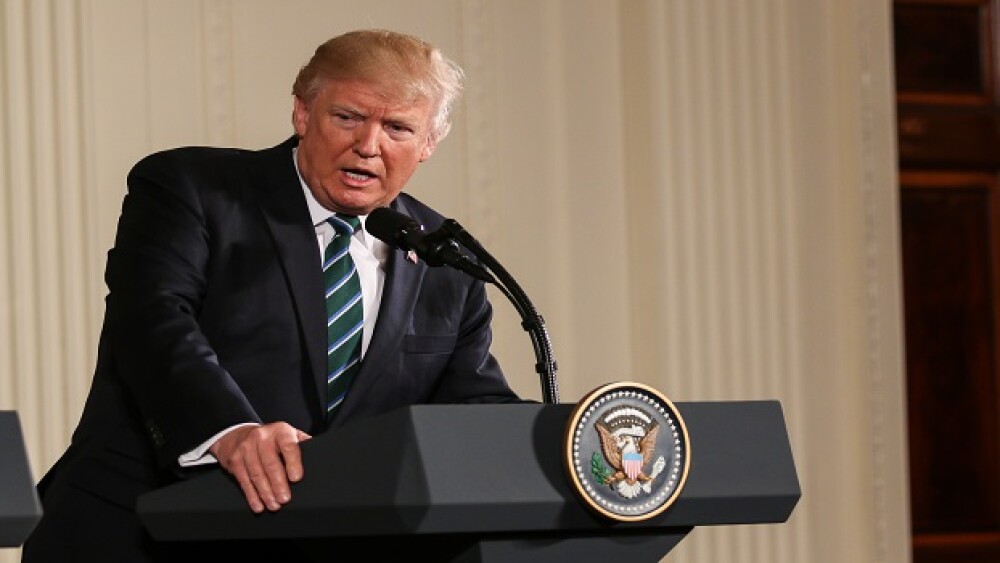The biopharma industry has been holding its collective breath all year, wondering what might be coming from the White House.
Nicole S Glass / Shutterstock
The biopharma industry has been holding its collective breath all year, wondering what might be coming from the White House. Teased in President Trump’s January State of The Union Address, alluded to again in a March speech, we were told, “you’ll be seeing drug prices falling very substantially in the not-too-distant future, and it’s going to be beautiful.” Yet when a proposal was actually announced earlier this month, drug stocks rallied. The common take was that this would do little to change the status quo.
That led to some vocal disappointment, particularly on the part of Democrats who felt that, in this area at least, they might have found a sympathetic ear in Trump. After all, he had championed two ideas long favored by many Democrats: Direct government negotiation with manufacturers on behalf of Medicare, and reimportation of cheaper drugs from abroad. This is a president who has kept many of his campaign promises—even when many people in his own party wished he wouldn’t. But when the American Patients First plan was announced May 10, these ideas—both pretty widely popular among the electorate—were nowhere to be seen.
Instead, the plan focuses on some softer targets, like reporting drug prices in advertisements, or allowing pharmacists more latitude in advising patients about getting the best drug prices. Other items could potentially have a more direct impact on prices, but require Congressional action that it’s not clear is forthcoming.
Yet there is one proposal in the plan that is both odd and intriguing. In his speech announcing the plan, Trump said, “We’re going to be ending global freeloading.”
The idea is that other countries should pay more for their drugs. Instead of us enacting price controls, they should loosen theirs. The presumed logic is that if drug companies can make more profits outside the U.S., they’ll be willing to lower prices here. (Just don’t expect that to happen in a hurry!)
This idea didn’t come completely out of the blue. The White House Council of Economic Advisers explored the idea in February report. It makes the case that “foreign, developed nations, that can afford to pay for novel drugs, free-ride by setting drug prices at unfairly low levels, leaving American patients to pay for the innovation that foreign patients enjoy. Since these nations benefit from the innovations regardless of the costs to Americans, they currently have no reason to raise their own prices and exploit the fact that novel drugs are already invented.”
There’s certainly some truth to that. Even the report, however, is short on details about what could be done to counter this. One suggestion is that change could be implemented through “enhanced trade policy or policies that tie public reimbursements in the United States to prices paid by foreign governments that free-ride or other methods.”
It is hard to see how this would work in practice, however. This proposal would incentivize companies to demand higher prices abroad because they know their domestic reimbursement depends on it. The problem is, however, that companies already don’t have to accept lower prices outside the U.S. for their drugs. They could simply refuse to sell them.
The reason they don’t do that is that it’s pretty clear who will blink first. Many European countries have amply demonstrated in the past that they will simply do without innovation—that is, minor improvements in outcomes—if that can’t get it at the price they like. That generally doesn’t sit well with we Americans, who will pay a lot for incremental advantages. And thus we find ourselves at the current standoff.
I’d love to see the cost of innovation more equitably shared among wealthy nations. And kudos to the Trump Administration if they find an effective way to do it without seriously jeopardizing relationships with our allies. But there’s probably a reason that even the plan released this month outlines the concept more in questions than in answers. It’s not going to happen.





